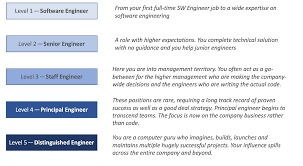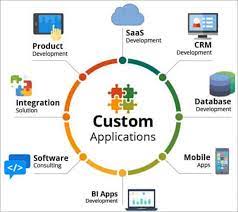Unlocking Success: The Power of Strategic Consulting in Today’s Business Landscape
In today’s fast-paced and competitive business environment, strategic consulting has become a crucial element for organizations looking to stay ahead of the curve. Strategic consulting involves the analysis, planning, and implementation of strategies that align with an organization’s goals and objectives. It provides a roadmap for success by helping businesses navigate challenges, capitalize on opportunities, and achieve sustainable growth.
One of the key benefits of strategic consulting is its ability to provide an external perspective on an organization’s operations. By working with experienced consultants who have a deep understanding of various industries, businesses can gain valuable insights into market trends, competitive landscapes, and best practices. This outside perspective can uncover blind spots, identify inefficiencies, and unlock new opportunities for growth.
Strategic consultants also play a vital role in helping organizations adapt to change. Whether it’s due to shifts in consumer behavior, technological advancements, or regulatory requirements, businesses must be agile and responsive to stay relevant. Strategic consultants can assist in developing flexible strategies that allow organizations to pivot quickly in response to changing market conditions.
Furthermore, strategic consulting helps organizations set clear goals and priorities. By conducting thorough analyses of internal capabilities and external factors, consultants can help businesses define realistic objectives and create actionable plans to achieve them. This focus on goal-setting ensures that resources are allocated efficiently and that efforts are directed towards activities that drive long-term success.
Overall, strategic consulting is a powerful tool for organizations seeking to enhance their competitiveness and drive sustainable growth. By leveraging the expertise of seasoned consultants, businesses can develop robust strategies that position them for success in today’s dynamic business landscape.
Unlocking Success: 9 Key Benefits of Strategic Consulting for Business Growth
- Provides an external perspective on business operations
- Offers valuable insights into market trends and best practices
- Helps uncover blind spots and identify inefficiencies
- Assists in adapting to changes in the business environment
- Supports setting clear goals and priorities for the organization
- Aids in developing flexible strategies for agile decision-making
- Drives sustainable growth by aligning strategies with organizational objectives
- Enhances competitiveness by staying ahead of the curve
- Optimizes resource allocation for maximum efficiency
Challenges of Strategic Consulting: High Costs, Dependency Risks, and Potential for Generic Solutions
- Costly service, may not be affordable for small businesses
- Dependency on external consultants, which can lead to reliance issues
- Potential for conflicts of interest if consultants have relationships with competitors
- Time-consuming process that may disrupt daily operations
- Difficulty in measuring the direct impact of strategic consulting on bottom-line results
- Risk of implementing generic solutions that do not address the unique challenges of the organization
Provides an external perspective on business operations
One significant advantage of strategic consulting is its ability to offer an external perspective on business operations. By collaborating with experienced consultants who bring fresh insights and industry knowledge, organizations can gain valuable perspectives that may not be apparent from within. This external viewpoint helps identify blind spots, inefficiencies, and untapped opportunities, enabling businesses to make informed decisions and implement strategies that drive growth and success.
Offers valuable insights into market trends and best practices
Strategic consulting offers valuable insights into market trends and best practices, providing businesses with a competitive edge in understanding the ever-evolving landscape of their industry. By analyzing market trends, consultants can help organizations anticipate changes, identify emerging opportunities, and stay ahead of the curve. Furthermore, gaining insights into best practices allows businesses to learn from successful strategies implemented by industry leaders, enabling them to adopt proven methods and enhance their own operations for optimal performance and growth.
Helps uncover blind spots and identify inefficiencies
Strategic consulting plays a crucial role in helping organizations uncover blind spots and identify inefficiencies within their operations. By leveraging the expertise of experienced consultants, businesses can gain valuable insights into areas that may be hindering their performance or growth potential. Through thorough analysis and assessment, strategic consultants can pinpoint weaknesses in processes, systems, or strategies that may have gone unnoticed internally. By addressing these blind spots and inefficiencies, organizations can streamline their operations, improve productivity, and enhance overall performance to achieve sustainable success.
Assists in adapting to changes in the business environment
Strategic consulting plays a crucial role in assisting organizations to adapt effectively to changes in the business environment. By providing valuable insights, expertise, and guidance, strategic consultants help businesses navigate through uncertain times, embrace new opportunities, and overcome challenges brought about by shifts in market dynamics, technological advancements, or regulatory requirements. With their strategic foresight and industry knowledge, consultants enable organizations to proactively adjust their strategies, operations, and processes to stay agile and competitive in an ever-evolving business landscape.
Supports setting clear goals and priorities for the organization
Strategic consulting plays a vital role in supporting organizations in setting clear goals and priorities. By conducting in-depth analyses of the internal capabilities and external market factors, consultants help businesses define realistic objectives that align with their long-term vision. This process enables organizations to focus their resources effectively, prioritize initiatives, and create actionable plans to achieve their strategic goals. With the guidance of strategic consultants, businesses can establish a roadmap that ensures alignment across all levels of the organization and drives sustainable growth and success.
Aids in developing flexible strategies for agile decision-making
Strategic consulting excels in aiding organizations to develop flexible strategies that facilitate agile decision-making. By leveraging the expertise of consultants who possess a deep understanding of market dynamics and industry trends, businesses can adapt swiftly to changing environments. This proactive approach enables organizations to make informed decisions promptly, seize emerging opportunities, and effectively navigate uncertainties. The flexibility inherent in strategic consulting empowers businesses to stay responsive and resilient in the face of evolving challenges, ultimately fostering a culture of innovation and strategic agility.
Drives sustainable growth by aligning strategies with organizational objectives
Strategic consulting drives sustainable growth by aligning strategies with organizational objectives. By ensuring that every strategic decision is directly linked to the overarching goals of the organization, businesses can focus their resources and efforts on activities that contribute to long-term success. This alignment fosters a clear sense of direction, enhances operational efficiency, and maximizes the impact of strategic initiatives, ultimately leading to sustainable growth and competitive advantage in the market.
Enhances competitiveness by staying ahead of the curve
Strategic consulting enhances competitiveness by enabling organizations to stay ahead of the curve in a rapidly evolving business environment. By leveraging the expertise of consultants who possess in-depth industry knowledge and insights, businesses can proactively identify emerging trends, anticipate market shifts, and capitalize on new opportunities before their competitors. This strategic foresight allows organizations to adapt swiftly to changing conditions, innovate effectively, and maintain a competitive edge that positions them for long-term success in their respective industries.
Optimizes resource allocation for maximum efficiency
Strategic consulting optimizes resource allocation for maximum efficiency by analyzing the organization’s current resources and identifying areas where improvements can be made. By strategically allocating resources based on priorities and goals, businesses can ensure that their time, money, and manpower are utilized effectively to achieve optimal results. This proactive approach to resource management helps organizations streamline their operations, reduce waste, and enhance overall productivity, ultimately leading to improved performance and profitability.
Costly service, may not be affordable for small businesses
One significant drawback of strategic consulting is its cost, which may render the service unaffordable for small businesses with limited financial resources. The expertise and specialized knowledge offered by strategic consultants come at a premium price, making it challenging for smaller enterprises to access these services. As a result, small businesses may miss out on valuable strategic insights and guidance that could help them navigate complex challenges and achieve sustainable growth in a competitive market environment.
Dependency on external consultants, which can lead to reliance issues
One significant con of strategic consulting is the potential dependency it creates on external consultants, which can lead to reliance issues within an organization. Relying heavily on external consultants for strategic guidance and decision-making can result in a lack of internal expertise development and ownership of the strategies implemented. This dependency may hinder the organization’s ability to adapt independently to changing circumstances and make crucial strategic decisions without external input. Additionally, over-reliance on consultants can lead to increased costs over time and a disconnect between the recommended strategies and the organization’s core values or long-term objectives.
Potential for conflicts of interest if consultants have relationships with competitors
One significant con of strategic consulting is the potential for conflicts of interest to arise when consultants have existing relationships with competitors. This situation can compromise the objectivity and impartiality of the consulting process, as consultants may inadvertently prioritize the interests of one client over another. Such conflicts can undermine trust and credibility, leading to concerns about the confidentiality of sensitive information and the fairness of strategic recommendations. Organizations must carefully assess and manage these potential conflicts to ensure that their strategic consulting engagements remain ethical and unbiased.
Time-consuming process that may disrupt daily operations
One significant drawback of strategic consulting is that it can be a time-consuming process that has the potential to disrupt daily operations within an organization. Engaging in strategic consulting often requires dedicating substantial time and resources to meetings, data collection, analysis, and strategy development. This intensive process may divert attention away from day-to-day tasks and projects, leading to delays in decision-making and implementation of essential activities. The disruption caused by the time commitment of strategic consulting can strain resources and impact productivity, potentially causing short-term challenges for the organization.
Difficulty in measuring the direct impact of strategic consulting on bottom-line results
One significant con of strategic consulting is the challenge in measuring the direct impact of consulting efforts on bottom-line results. Unlike more tangible metrics such as revenue or cost savings, the outcomes of strategic consulting projects are often complex and multifaceted, making it difficult to attribute specific financial gains directly to the consulting intervention. This lack of clear cause-and-effect relationship can create uncertainty for organizations investing in strategic consulting, as they may struggle to quantify the return on investment and justify the expenditure to stakeholders. Additionally, the long-term nature of strategic initiatives means that their impact may not be immediately apparent, further complicating efforts to assess their effectiveness in driving measurable financial outcomes.
Risk of implementing generic solutions that do not address the unique challenges of the organization
One significant drawback of strategic consulting is the risk of implementing generic solutions that do not effectively address the unique challenges and complexities of an organization. Consultants may rely on standard frameworks and templates, leading to cookie-cutter strategies that fail to consider the specific nuances and intricacies of the business. This approach can result in missed opportunities for innovation and competitive advantage, as well as a lack of alignment with the organization’s distinct goals and capabilities. Without tailored solutions that reflect the individual needs of the organization, strategic initiatives may fall short of delivering meaningful results and sustainable growth.








